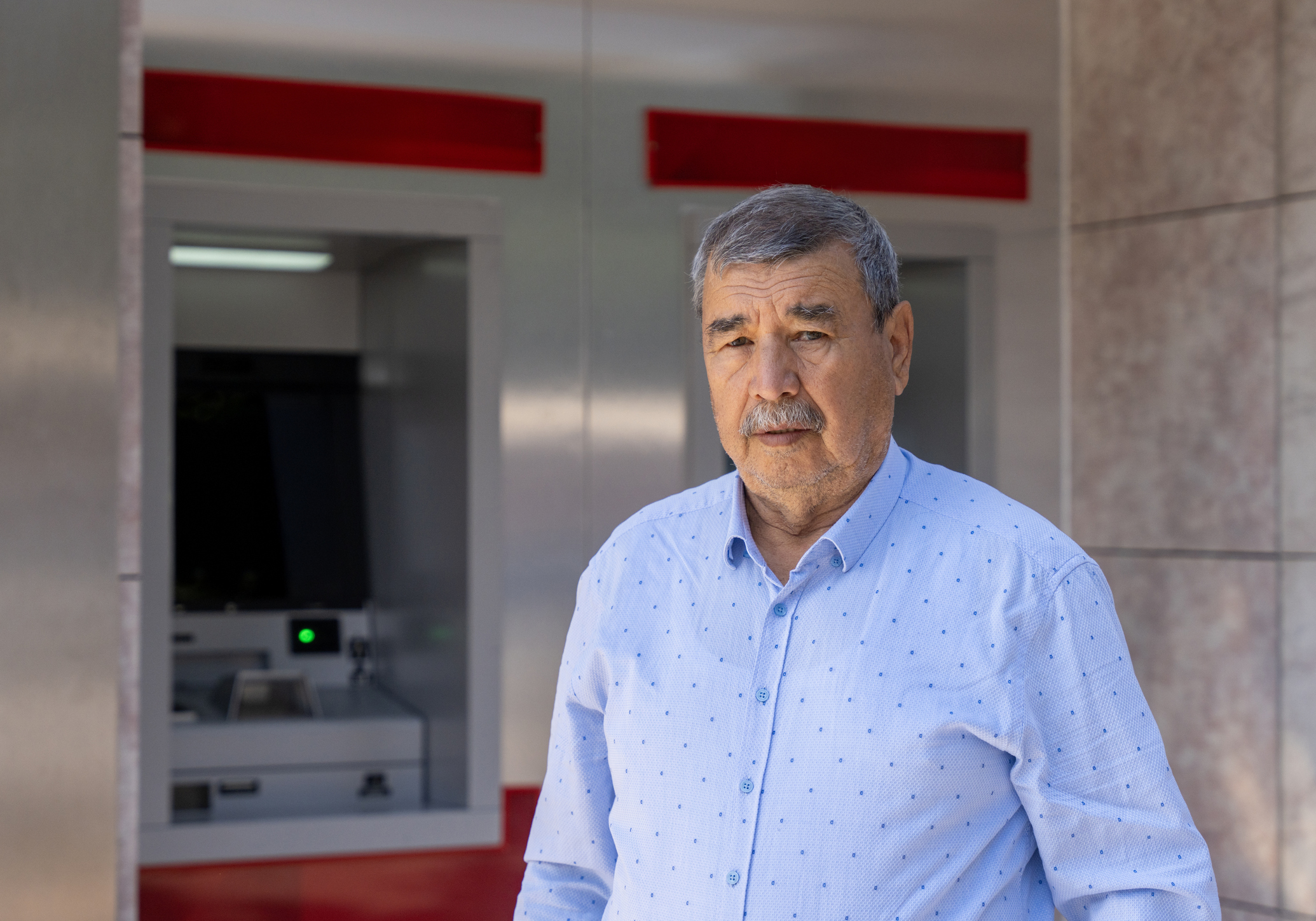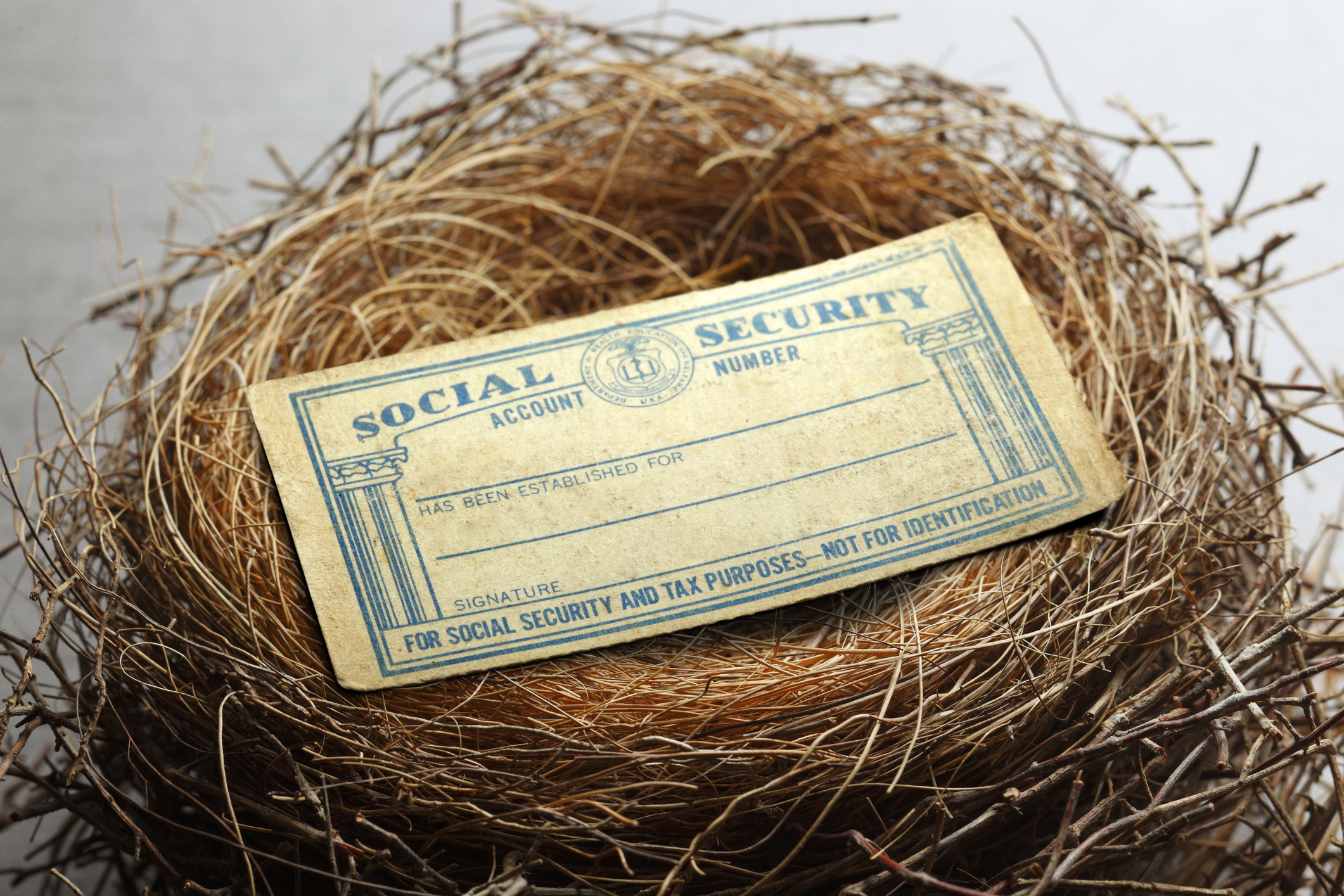Bank Closing Down? 5 Must-Know Strategies for Retirees
Concerned about your bank closing? For retirees who prefer in-person banking, here's what you can do now.


From Wells Fargo to JPMorgan Chase, banks nationwide are shuttering branches to save money and adapt as more people conduct their banking online and via mobile apps.
So far this year, several major banks, including Wells Fargo, TD Bank, JPMorgan Chase, Bank of America, and Flagstar, have announced branch closures across the U.S. The closures happened after a particularly busy 2024. Through the third quarter of last year, 944 bank branches closed their doors.
While the preference to conduct banking online and via mobile is growing across generations, millions of older adults visit branches in person.

Sign up for Kiplinger’s Free E-Newsletters
Profit and prosper with the best of expert advice on investing, taxes, retirement, personal finance and more - straight to your e-mail.
Profit and prosper with the best of expert advice - straight to your e-mail.
That’s particularly true among baby boomers, or those born between 1946 and 1964. The American Bankers Association found that 13% of baby boomers visit branches. Among Generation X, or those born between 1960 and 1980, 8% prefer to bank at a branch.
Meanwhile, 4% of millennials and Gen Z will visit a physical bank. That amounts to millions of Americans who still find value in banking in person.
What retirees can do in the wake of a local bank closing
“If your bank is closing a local branch, don’t panic — but don’t delay, either,” says Howard Dvorkin, CPA and Chairman of Debt.com. “Be proactive. Get support. And know that managing money in today’s world means staying flexible. With the right help, even big changes like this can become manageable.”
If you are among the people who use a physical bank and your local branch is closing, here are four things you can do.
1. Embrace online banking
The COVID-19 pandemic forced millions of Americans to try online shopping for the first time. After all, stores were shuttered, and that was the only option.
The same can be said for online banking, especially if you live in a rural area or small town where your bank is closing and your options are limited.
Sure, there is a learning curve with online banking, and yes, you may have to enlist the grandkids or a trusted friend to help get started. But online banking is not only convenient; once you get the hang of it, it is easy to do.
“Lots of online banks offer more services that make them a much more attractive option,” says Stephen Kates, a financial analyst at Bankrate. “A lot of these banks don’t have any costs built in, so they aren’t going to nickel and dime you. They don’t have as many annoying fees.”
If digital banking feels intimidating, Dvorkin says to ask for one-on-one help or seek free classes from local libraries or senior centers. “Banks increasingly offer these resources. There’s no shame in asking for help,” he says.
2. Rely on ATMs
Many people tend to be loyal to a bank. According to Bankrate data, the average banking customer has been with their financial institution for 15 to 17 years.
Breaking up may be hard to do, but the good news is that just because the branch is closing doesn’t mean you can’t access one of your bank’s ATMs. You won’t get charged for using an ATM owned by your bank, and you can make deposits and withdrawals from the screen.
Plus, you don’t have to worry about branch hours. If you have any questions, you can always call your bank for help.
3. Use a different bank branch
If your bank isn’t closing entirely, and there are other branches in the area, you can simply start banking at a new one. You won’t have to do anything other than travel potentially further to reach your bank.
“Start with a call to your bank and ask what support they offer during the transition. Many institutions provide help with setting up online banking or connecting with nearby branches,” says Dvorkin.
4. Search for an alternative bank
If all else fails, you can always switch to another bank that caters to retirees or consider moving your money to a credit union.
"Switching banks may seem stressful, but it’s easier than you think. Make a checklist — set up your new account, redirect direct deposits like Social Security, update bill payments, and then close your old account once everything’s transferred," says Dvorkin. "The key is to take it slow and focus on the basics: checking balances, making payments, and using alerts to monitor activity."
Credit unions are tied to the community and can be found throughout the country, said Alison Pahlkotter, an innovation product designer and research analyst at GreenPath Financial Wellness, a non-profit financial wellness counseling service.
You can find one near you through the National Credit Union Administration’s online search tool. Credit unions offer the same level of deposit insurance as the FDIC, so you don’t have to worry about losing your money.
“Credit unions for the average consumer are the identical experience,” says Pahlkotter. “I have my car loan through my credit union, a nice rewards credit card, and my deposit and checking accounts, plus I have a full online banking experience with them.”
5. Don't fight change
Change is hard, especially if you have been doing your banking at a particular branch for years, but it's important to embrace change. The sooner you do, the quicker you can get established online with a mobile banking app or at a new financial institution
Remember don't be afraid to ask for help or seek assistance from friends, family members or your community. There are many resources avaibale to help your during the transition.
Related content
Profit and prosper with the best of Kiplinger's advice on investing, taxes, retirement, personal finance and much more. Delivered daily. Enter your email in the box and click Sign Me Up.

Donna Fuscaldo is the retirement writer at Kiplinger.com. A writer and editor focused on retirement savings, planning, travel and lifestyle, Donna brings over two decades of experience working with publications including AARP, The Wall Street Journal, Forbes, Investopedia and HerMoney.
-
 This is the Best CD to Get Amid Rate Uncertainty
This is the Best CD to Get Amid Rate UncertaintyThis CD helps you earn more than 4%, with quick access to your cash if you need it.
-
 Is It Time to Cut the Cord on Your Landline?
Is It Time to Cut the Cord on Your Landline?With rising costs and evolving technology, many are rethinking their home phone service. Here's how to decide if it's time to let go.
-
 I Want to Buy an Annuity, but I'm Scared I'll Get Ripped Off. Should I Get One Anyway?
I Want to Buy an Annuity, but I'm Scared I'll Get Ripped Off. Should I Get One Anyway?An annuity is a way to achieve lifetime income in retirement, but you need to understand how this product works before making a purchase.
-
 Can AI Help With Your Finances?
Can AI Help With Your Finances?ChatGPT and other artificial-intelligence tools will streamline certain tasks, but don't count on them to get everything right.
-
 I'm a Financial Planner: Here Are Five Smart Moves for DIY Investors
I'm a Financial Planner: Here Are Five Smart Moves for DIY InvestorsYou'll go further as a DIY investor with a solid game plan. Here are five tips to help you put together a strategy you can rely on over the years to come.
-
 Neglecting Car Maintenance Could Cost You More Than a Repair, Especially in the Summer
Neglecting Car Maintenance Could Cost You More Than a Repair, Especially in the SummerWorn, underinflated tires and other degraded car parts can fail in extreme heat, causing accidents. If your employer is ignoring needed repairs on company cars, there's something employees can do.
-
 'Drivers License': A Wealth Strategist Helps Gen Z Hit the Road
'Drivers License': A Wealth Strategist Helps Gen Z Hit the RoadFrom student loan debt to a changing job market, this generation has some potholes to navigate. But with those challenges come opportunities.
-
 2026 Social Security COLA: The Little Known Data Shift That Could Impact Millions of Retirees' Benefits
2026 Social Security COLA: The Little Known Data Shift That Could Impact Millions of Retirees' BenefitsThe BLS has changed how it measures the inflationary data that determines whether Social Security benefits will get a Cost-of-Living Adjustment (COLA). Will it hurt your benefits?
